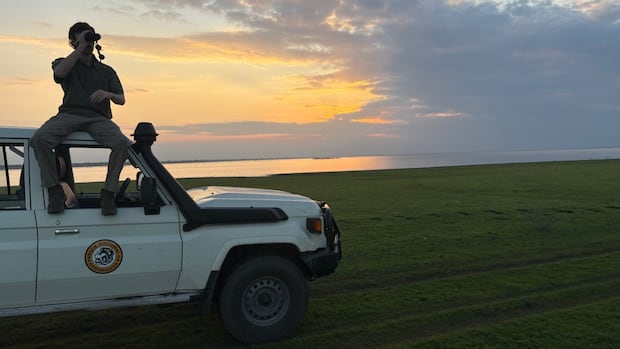A stereotypical image of a scientist is someone in a white lab coat peering into a microscope in a laboratory full of test tubes and exotic equipment.
While lab work is an important element of scientific research, there is a whole other side to science where investigators go out into nature armed with cameras, sound recorders, and other instruments to actively observe the subject they are interested in.
This might include crawling under bushes to observe a den of wild dogs in Africa, recording turtles as they talk to each other in an iconic Canadian park or virtually unwrapping ancient Incan mummies with high-tech scanners in Peru.
Of course, such adventures can come with surprises, like finding unexploded bombs from the Second World War while testing mineral-prospecting drones in a bog near Ottawa. It’s all part of what makes science exciting.
Field work is where many scientists gather data that they then examine back in the laboratory.
While some may question the purpose of looking at seemingly irrelevant topics, like the strange sex lives of insects in a tropical rainforest, all scientific investigations are an attempt to understand the fundamental workings of nature. And there is a lot we still don’t know, especially when it comes to connections.
As the famous naturalist John Muir said, “When one tugs at a single thing in nature, he finds it attached to the rest of the world.”
Science is the tool we use to discover how insects are connected to the web of life that encompasses our planet, and shows how life is connected to the atmosphere, the oceans, and geological phenomena like volcanic eruptions, all interacting to form the amazing ecosystem called Earth.

On a grander scale, astronomers see the the ultimate environment of our planet as it circles a star orbiting along with hundreds of billions of other stars around an unimaginably big galaxy that is one of billions of other galaxies filling an even more unimaginably vast universe that is getting larger by the second.
For 50 years, Quirks & Quarks has been following these scientific advances every week and the remarkable thing is that throughout that time, people have become increasingly interested in science and hearing from the scientists who do it
Of course we face challenges today such as climate change, increasing population, higher demands for energy, water and food, while natural spaces and species disappear.
But the tool to understand and find ways to remedy these problems is science, which is why it is important to have a scientifically literate society to make informed decisions that lead to sustainable solutions.
We hope to contribute to this by presenting science from those who practice it. Stay tuned for a special episode celebrating our 50th birthday in October. We’ll be looking ahead to new discoveries on the horizon across many fields of science to see how far we’ve come since we first went to air in 1975.
There is still much to learn about the universe, from the nature of dark matter and dark energy, to the origins of life and whether life exists on other planets, to how humans can thrive in a changing world. Whatever the eyes of science see, Quirks will be there to tell you about it.







